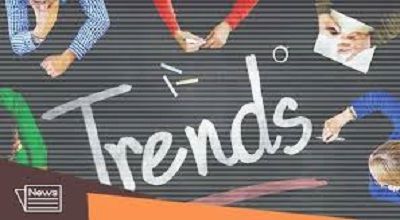Educational Trends In Pakistan
Guys now here, I can provide you with some trends. That was relevant to education in Pakistan up until that time. Please note that these trends might have evolved or changed since then. It’s recommended to consult more recent sources for the latest information. Here are some trends that were observed in the Pakistani education system:
- Technology Integration: Like in many other countries. Technology was being increasingly integrated into education in Pakistan. This includes the use of digital tools, online learning platforms, and educational apps to enhance teaching and learning experiences.
- Online and Distance Learning: The COVID-19 pandemic accelerated the adoption of online and distance learning methods. Educational institutions, including schools, colleges, and universities, had to quickly adapt to delivering lessons and coursework through online platforms.
- Skill-Based Education: There was a growing recognition of the need to align education with real-world skills and employment opportunities. Vocational and technical education gained more attention to prepare students for a wide range of careers.
- Focus on STEM: Science, Technology, Engineering, and Mathematics (STEM). The education education continued to be emphasized to meet the demands of a changing job market. And technological advancements.
- Teacher Training and Professional Development: Efforts were being made to improve the quality of teaching. By providing teachers with ongoing training and professional development opportunities.
More Read
- Private Education Sector: The private education sector was expanding, offering alternative educational options to families who could afford them. This included private schools and colleges that aimed to provide higher-quality education.
- Girls’ Education: There was increased attention on improving access to education for girls and women. With various initiatives and campaigns focusing on reducing gender disparities in education.
- Standardized Testing and Assessment: Standardized testing was commonly used for evaluating student performance. And admissions into higher education institutions.
- Higher Education Reforms: Reforms were being discussed. And implemented in higher education institutions to improve the quality of education. Research output, and overall academic environment.
- Inclusion and Special Education: Efforts were being made to include students with disabilities in mainstream education settings. Although there were challenges related to infrastructure and training for educators.
MCQ’S
Absolutely, here are some multiple-choice questions (MCQs) related to the trends in education in Pakistan:
1: What is one of the prominent trends in education in Pakistan related to the impact of the COVID-19 pandemic?
a) Increased focus on traditional classroom learning
b) Decreased emphasis on digital learning platforms
c) Growing interest in online and blended learning
d) Reduction in educational technology adoption
2: Which educational approach was gaining importance in Pakistan to address the demand for skilled professionals?
a) Humanities and Arts Education
b) STEM education (Science, Technology, Engineering, and Mathematics)
c) Social Sciences Education
d) Religious Studies Education
3: Efforts to improve access to education for girls in Pakistan. We’re primarily focused on:
a) Urban areas
b) Boys’ schools
c) Rural areas
d) Private schools
4: What aspect of teacher development was being emphasized in Pakistan’s education sector?
a) Increasing administrative responsibilities for teachers
b) Reducing the need for continuous professional development
c) Enhancing teacher training and professional growth
d) Limiting teacher-student interactions
5: The Higher Education Commission (HEC) in Pakistan was working on reforms to enhance the standards of:
a) Primary schools
b) Technical and vocational institutions
c) Religious seminaries (madrasas)
d) Universities and research institutions
6: Which area of education was receiving attention through initiatives? Such as incubators and startup accelerators?
a) Traditional teaching methods
b) Language and literature studies
c) Innovation and entrepreneurship
d) Arts and culture
7: What role did digital resources, like e-libraries, play in Pakistan’s education trends?
a) Decreasing the reliance on physical textbooks
b) Replacing traditional classroom instruction entirely
c) Providing access to a wide range of educational materials
d) Eliminating the need for teacher-student interaction
8: Why were efforts being made to promote regional languages alongside Urdu and English in education?
a) To phase out Urdu and English from the curriculum
b) To prioritize English over all other languages
c) To ensure education is accessible to diverse linguistic groups
d) To discourage the use of regional languages in schools
9: What was a significant factor contributing to the emergence of education technology startups in Pakistan?
a) Lack of interest in digital learning platforms
b) Government restrictions on technology use in education
c) Growing demand for innovative educational solutions
